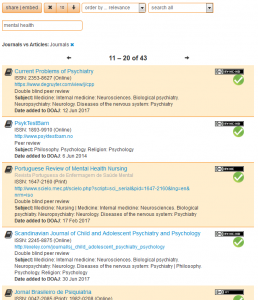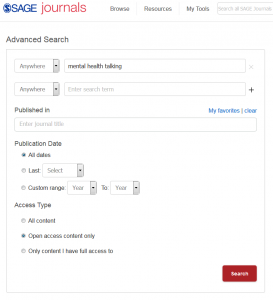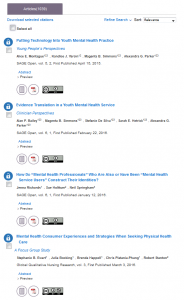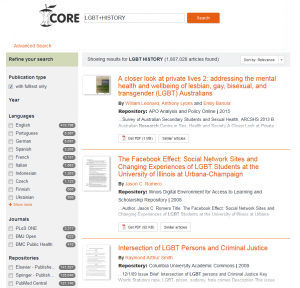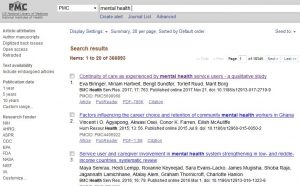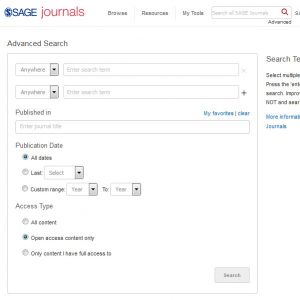With the ‘Time to Talk’ campaign (and the accompanying hastag #TimeToTalkDay2018) occurring this week, and with this blog post being written at the outset of LGBT+ History Month, this prompted some reflection on our part concerning what open access related sources and tricks we might want people outside of academia, who wanted to find the latest research on these topics for instance, to know about and utilise in order to further their access to public research.
Some signposts to such resources follow, using mental health and LGBT+ search terms for illustrative purposes. These databases and tricks could also prove useful as searching tools for those researchers who may be between academic posts and therefore temporarily without access to articles via institutional subscriptions.
TIP 1: Collate a list of fully open access journals that are relevant to your research field – find related fully open access journals using the Directory of Open Access Journals (DOAJ), for instance:
You can even use the database to search at article level – see a search result example here
TIP 2: Use the advanced search option of publisher’s websites to filter your search by ‘open access content’
See here for example search results
TIP 3: Utilise the ‘Request a Copy’ button
We have blogged about this before at LSHTM, because we want people to know that even when an article appears to be behind a paywall, there are simple and legal ways that one can access that research – simply contact an author directly or the author’s institutional respository staff to request the material, which they will provide where they can.
More details & resources:
Request-a-Copy Button and Copyright Law blog post
Capturing the Open Access status of some of the year’s research from LSHTM blog post
Exceptions to Copyright for Education and Teaching
TIP 4: Use repository content aggregators like CORE
CORE brings together research material from institutional repositories around the world and as such constitutes a very rich go-to resource – see here for example search results
TIP 5: Search PubMedCentral
PMC is a free full-text archive of biomedical and life sciences journal literature – see here for example search results
A visual highlight of these resources, so one knows when they’ve found the appropriate tool is:
If you are a medical researcher, particularly if you are based at the School, and you would like to share your views on open access for Emily’s project do get in touch with her! You can find her on Twitter.







